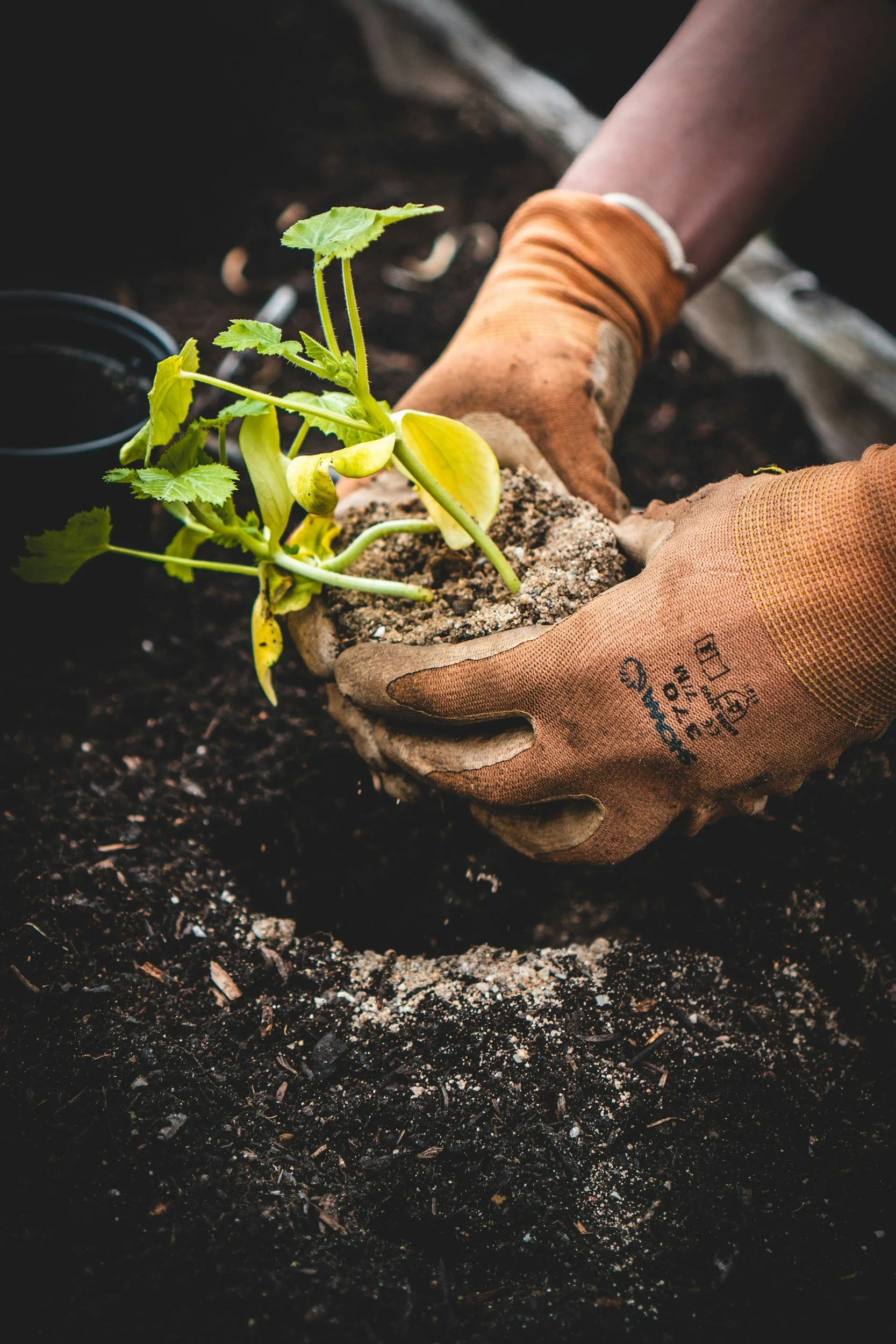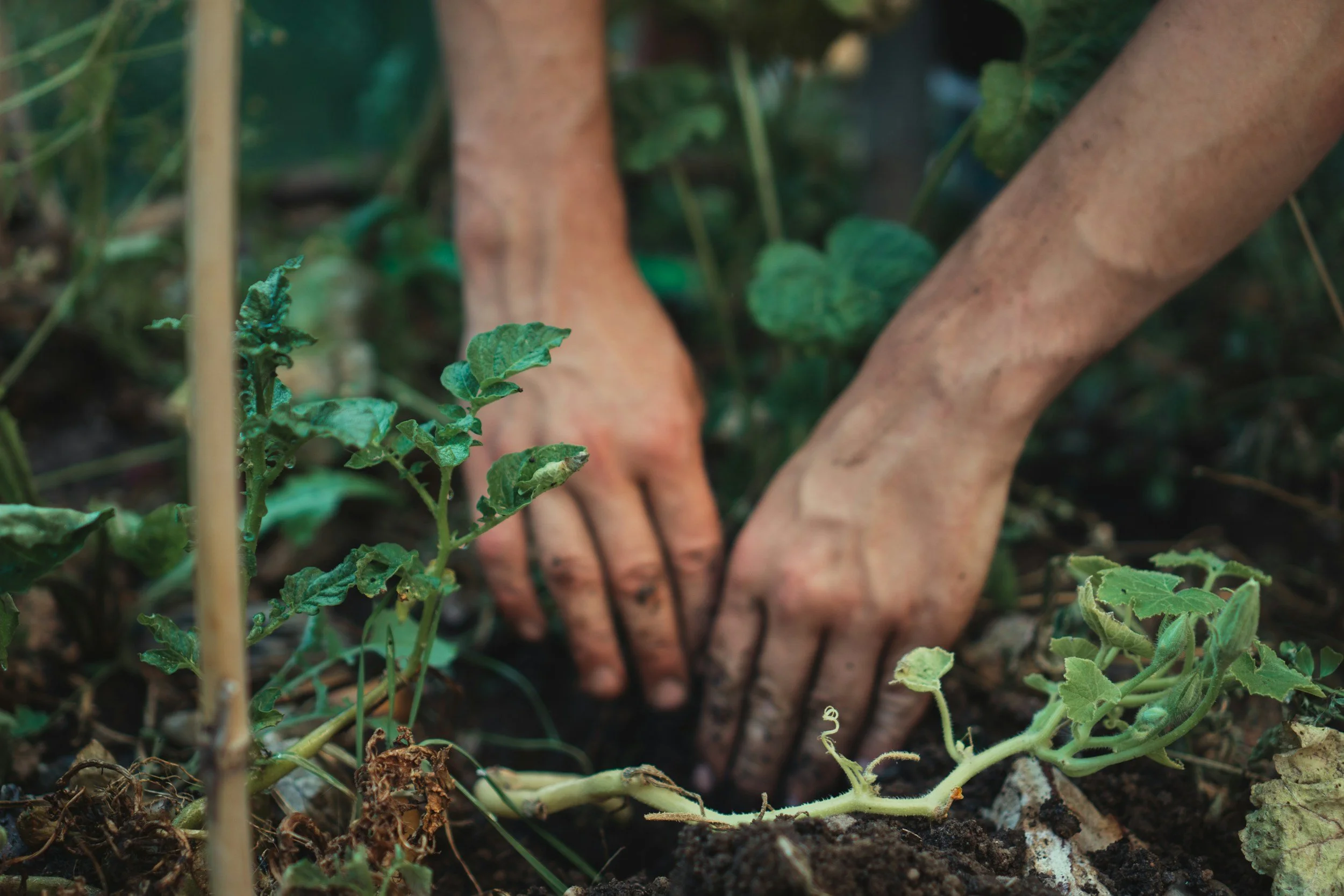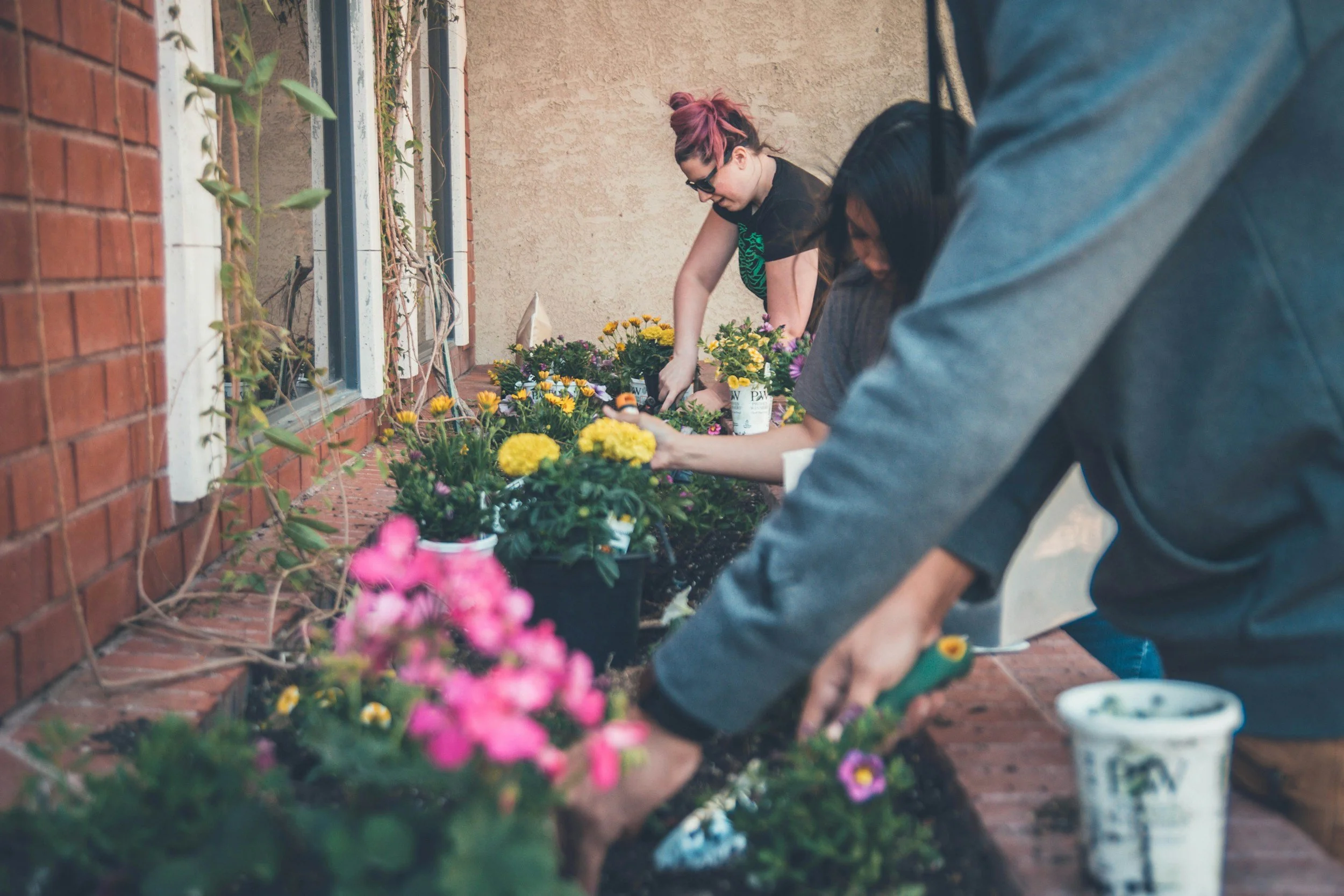
Therapeutic Gardening
Therapeutic gardening offers a grounded, hands-on way to reconnect with the rhythms of nature and the wisdom of your own body. Rooted in slowness, stewardship, and reciprocity, this practice invites clients to engage with soil, plants, and seasonal cycles as co-facilitators in the healing process. Therapeutic gardening can support nervous system regulation, grief work, identity exploration, and reconnection with land-based traditions. It’s a space where growth is nonlinear, care is mutual, and healing happens quietly through presence and patience.
Whether you're new to therapeutic gardening or have a long-standing practice, we meet you where you are. We currently offer gardening therapy in-person at our office in Chicago’s Irving Park neighborhood.
Areas of Clinical Specialty
LGBTQIA+: We offer affirming care for the LGBTQIA+ community. In therapeutic gardening, tending to plants can become a tender practice of self-affirmation and embodiment. Our queer therapists support you as you navigate identity development, discrimination, dysphoria, coming out, and chosen family—offering grounded, nature-based practices that mirror cycles of growth, resilience, and becoming.
ENM/Poly Folks: Our clinical therapists understand the relational dynamics of ethical non-monogamy and polyamory. Therapeutic gardening offers a living metaphor for care across many roots and branches—nurturing connection, honoring difference, and cultivating mutual thriving. Whether you're exploring new structures or confronting stigma, we hold space with consent, curiosity, and respect.
BDSM/Kink Community: We affirm kink as a valid form of identity, intimacy, and self-expression. In the garden, power, trust, and care show up through structure, attention, and intentionality. Therapeutic gardening can be a space for somatic healing, grounded presence, and reclaiming embodied pleasure. We hold your experiences without pathologizing your practices.
Immigrants/Refugees: We provide culturally responsive care for immigrants, refugees, and first-generation individuals. Gardening therapy can offer reconnection to ancestral foodways, land-based memory, and cycles of belonging. Whether you're navigating displacement, loss, or adaptation, we approach your story with care, dignity, and respect.
Substance Use: We support clients exploring their relationship with substances via a harm reduction framework. Therapeutic gardening encourages presence, routine, and relationship with something beyond the self. Whether you seek sobriety, moderation, or deeper insight, we offer care rooted in compassion, not shame.
Chronic Illness/HIV: Living with chronic illness or HIV can shape how you relate to time, energy, and care. Gardening therapy offers a slow, adaptive space for connection with your body, the earth, and your own rhythms. We honor your autonomy and lived experience while creating space for restoration and agency.
Autism/ADHD/Neuroqueer: We affirm neurodivergence as natural human variation. Therapeutic gardening allows for stimming, sensory engagement, and nonlinear expression in ways that feel grounding, not overwhelming. We co-create a space that honors your pace, preferences, and ways of processing, without pressure to mask or conform.
Multi-Cultural/Mixed-Race: Navigating multiple cultural identities often involves layered stories of place, lineage, and belonging. BIPOC gardening therapy can become a personal and ancestral ritual—a way to reconnect with land, memory, and self. Our Chicago therapists support you in exploring cultural hybridity and reclamation, with gentleness and depth.
Artists/Performers/Craftsfolk: Creative energy and the cycles of nature are deeply connected. For artists and craftspeople, therapeutic gardening can help renew inspiration, process creative blocks, and foster balance between output and rest.
Religious/Spiritual Trauma: Gardening can offer a spacious, quiet way to explore spirituality on your terms, without doctrine or coercion. If you’re recovering from religious trauma, therapeutic gardening can support your process of grief, reclamation, and redefinition.
Parenting: Caregivers often give endlessly without space to receive. Therapeutic gardening offers a hands-on, restorative practice to reconnect with yourself while nurturing growth. Whether you’re seeking gardening for stress, anxiety, or overwhelm, we support you in cultivating clarity, presence, and replenishment.
Educators: For educators navigating burnout or systemic barriers, gardening therapy can be a way to reconnect with purpose, self-regulation, and creativity. We support you in tending to yourself, not just others.
Activists: Justice work asks much of the body, mind, and spirit. In therapeutic gardening, we reclaim space for rest, grief, and rooted joy. Tending plants is not just a metaphor—it’s a practice of living care, regeneration, and relational repair. We hold your activism as both labor and life.
Mad/Crip Folks: We serve Mad/Crip clients seeking therapy on their terms. Therapeutic gardening can be deeply adaptive, designed around access needs, sensory preferences, and energy levels. We center your autonomy, resist psychiatric coercion, and honor your wisdom and care as interwoven with the natural world.
What to Expect
No two therapeutic gardening sessions look the same. We begin by getting to know your biography, culture, neurotype, and temperament—understanding how you relate to nature, care, and your own body. Together, we’ll clarify your goals for engaging with gardening as a healing practice, explore potential challenges, and determine how this modality can best support your wellness. Gardening is just one of many therapeutic tools we offer—one that invites slowness, reciprocity, and grounded presence. Your relationship with land, environment, and ancestral traditions may shape our work in ways that are joyful, surprising, and deeply meaningful.
Your first session is a space for mutual discovery. You’ll get to know your therapist as much as they’ll be getting to know you. We’ll explore whether therapeutic gardening feels like a good fit, review scheduling, payment, and accessibility, and co-create a plan for moving forward. Our goal is to help you feel at ease and supported as you cultivate a deeper relationship with yourself, your environment, and the cycles of growth around you.
-
That’s completely okay, and actually very common. You don’t need any prior gardening knowledge to benefit from this work. Therapeutic gardening isn’t about being “good” at growing things; it’s about engaging with the natural world through presence, care, and curiosity. We’ll begin with simple, accessible practices and move at a pace that feels right for you. Your therapist will guide you gently, helping you discover what feels grounding, restorative, or meaningful.
-
We always center your body’s needs and preferences. Whether that means working with indoor plants, raised beds, seated options, or sensory-friendly tools, we’ll adapt our approach to ensure gardening is accessible and comfortable. There’s no one “right” way to engage with this work, and your experience, comfort, and autonomy come first.
-
The psychotherapists at The Hinterlands are in-network with Blue Cross Blue Shield PPO and Aetna. We are out-of-network with all other insurance providers, including Medicaid and Medicare. Payment is due at the time of service.
If you're using out-of-network benefits, we’re happy to provide monthly superbills and statements to support your reimbursement process. We accept HSA cards, Zelle, and all major credit cards for payment.
-
We are committed to providing affordable gardening therapy in Chicago. We offer a range of cash-pay options, including sliding scale therapy sessions. These rates are based on therapist availability and the type of treatment, and typically range from $25 to the full session fee.
Sliding scale slots are limited and tend to fill quickly. During your intake call, you can ask your therapist whether they currently have sliding scale availability.




